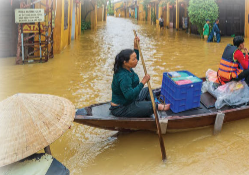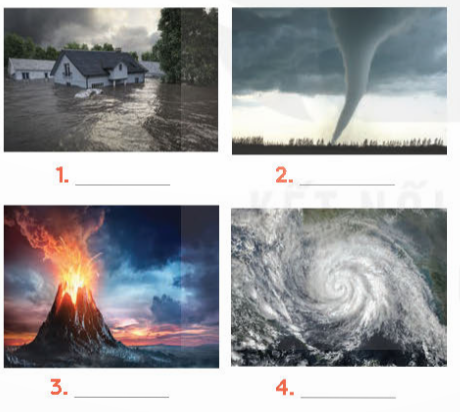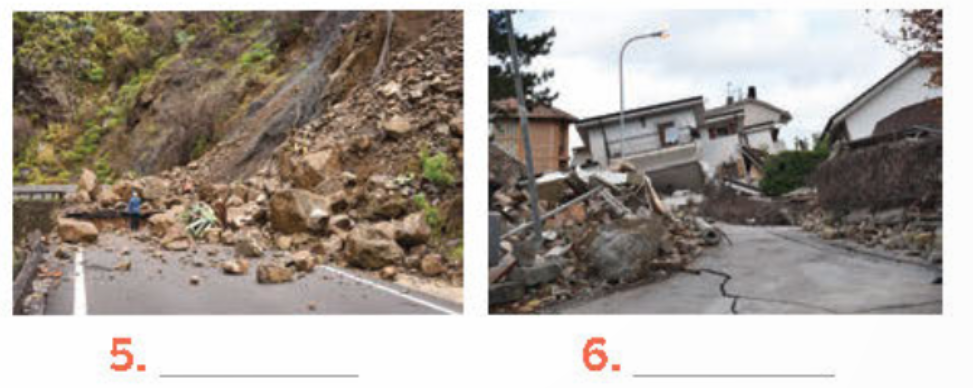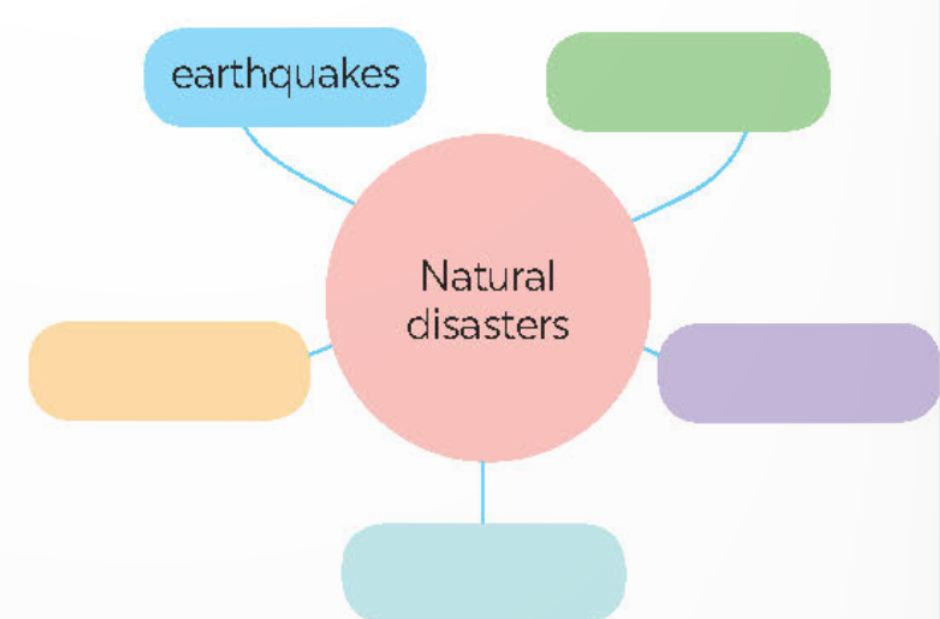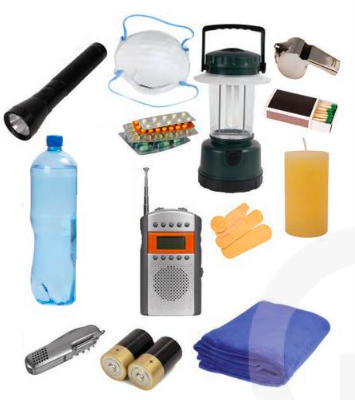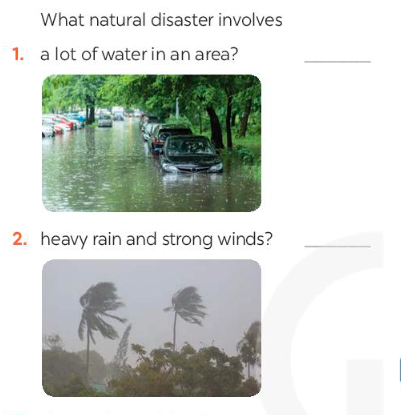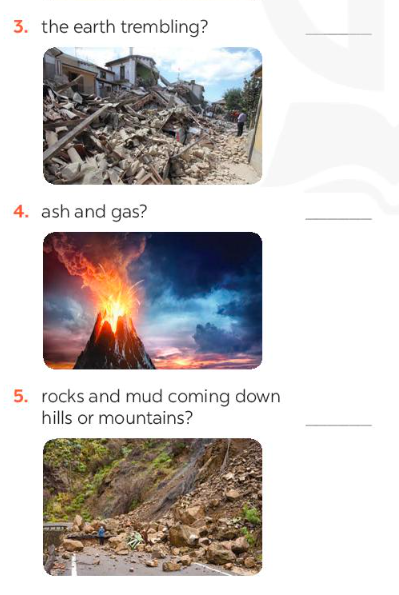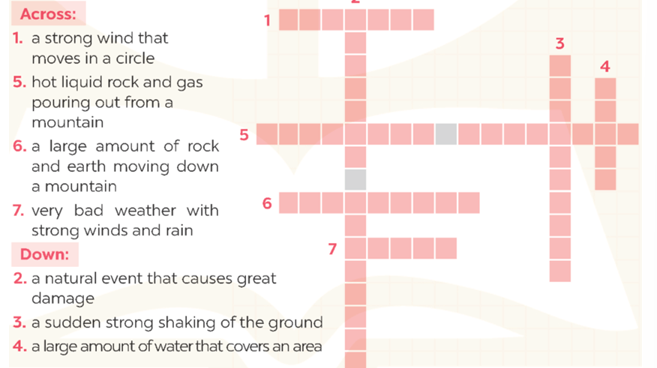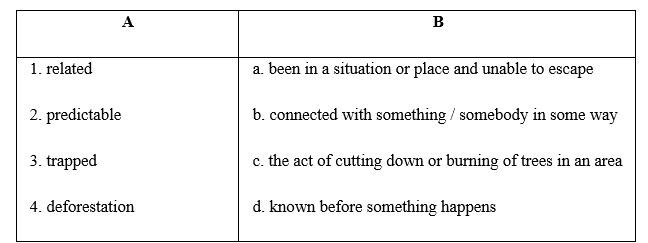Giải SGK, SBT Unit 9. Natural disasters Global Success
Giải SGK, SBT Unit 9 Global Success
2. Write a word or phrase from the box under the correct picture.
(Viết một từ hoặc cụm từ từ hộp dưới hình ảnh đúng.)
|
emergency kit victim rescue worker property whistle |
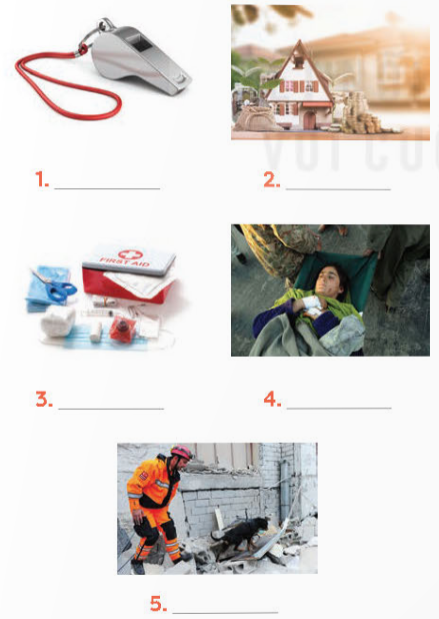
3. Fill in each blank with a word or phrase from the box.
(Điền vào mỗi chỗ trống với một từ hoặc cụm từ trong hộp.)
|
warning predict property damage emergency kit |
1. Natural disasters can cause serious _____ to human life.
2. Local authorities gave a flood _____ yesterday, so today people are moving to safer places.
3. To prepare for a natural disaster, we should make a(n) _____.
4. It’s hard to believe that we cannot _____ when earthquakes will happen.
5. They lost all of their _____ because of the volcanic eruption.
1. Match the headlines (1 - 2) with the natural disasters (A - B).
(Ghép các tiêu đề (1 - 2) với các thảm họa thiên nhiên (A - B).)
|
1. 30 seconds of a slight shaking in Hanoi |
A. volcanic eruption |
|
2. A thick layer of ash covers Tonga |
B. earthquake |
2. Read the two news articles. Matched the highlighted words with their meanings.
(Đọc hai bài báo. Nối các từ được đánh dấu với ý nghĩa của chúng.)
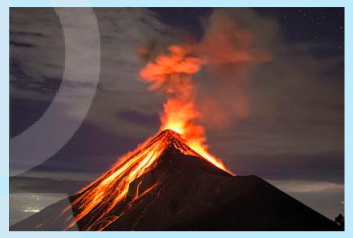
A volcano in the South Pacific erupted violently last Saturday. It hit Tonga, an island country in the area. The eruption sent a cloud of ash and gas into the air. People could see this cloud from 20 kilometres away. The eruption also caused a tsunami which flooded properties in Tonga’s capital. Besides, it destroyed hundreds of homes on some small islands. More than twenty people on these islands are still missing. New Zealand sent two big ships to Tonga to help the victims yesterday.

Residents in tall buildings in Ha Noi were frightened when they felt a slight shaking for about 30 seconds last night. “I was watching TV when my building started trembling. Books, lights, and other things also moved”. Ms Nguyen Ha, a resident in the Sunshine Building, shared. Many people living in the building ran out of their homes in fear. According to scientists, a strong earthquake in China caused this shaking. Luckily, there was no damage.
|
1. violently |
a. not yet found |
|
2. tsunami |
b. slightly shaking |
|
3. missing |
c. the bad feeling you have when you are frightened |
|
4. trembling |
d. very strongly |
|
5. fear |
e. very large waves in the sea |
4. Work in pairs. Match the questions with the answers.
(Làm việc theo cặp. Phù hợp với câu hỏi với câu trả lời.)
|
1. What kind of natural disaster was it? |
a. Five days of heavy rain caused it. |
|
2. When and where did it happen? |
b. Many houses were flooded, two villagers died, and five others were missing. |
|
3. What caused it? |
c. It was a serious flood. |
|
4. What were its effects? |
d. Rescue workers looked for the missing people, and volunteers gave food and drinks to the victims. |
|
5. How did people help the victims? |
e. It happened in a village in Phu Yen last week. |
3. Listen again and tick T (True) or F (False) for each sentence.
(Nghe lại và đánh dấu T (True) hoặc F (Sai) cho mỗi câu)
|
1. The broadcast is on TV. (Phát sóng trên ti vi.) |
|
|
|
2. You should bring flowerpots and rubbish bins into the house. (Bạn nên mang chậu hoa và thùng rác vào trong nhà.) |
|
|
|
3. Right after the storm, you can leave your home. (Ngay sau khi bão qua, bạn có thể rời khỏi nhà.) |
|
|
|
4. The local authority may warn you about dangerous places. (Giới chức trách địa phương có thể sẽ cảnh báo cho bạn về những nơi nguy hiểm.) |
|
|


